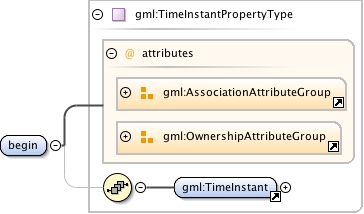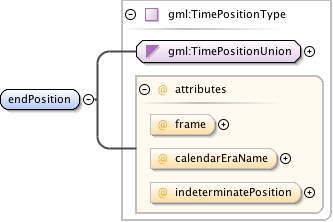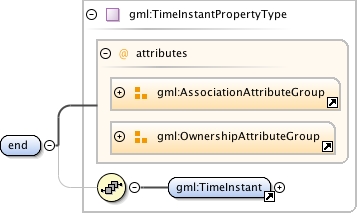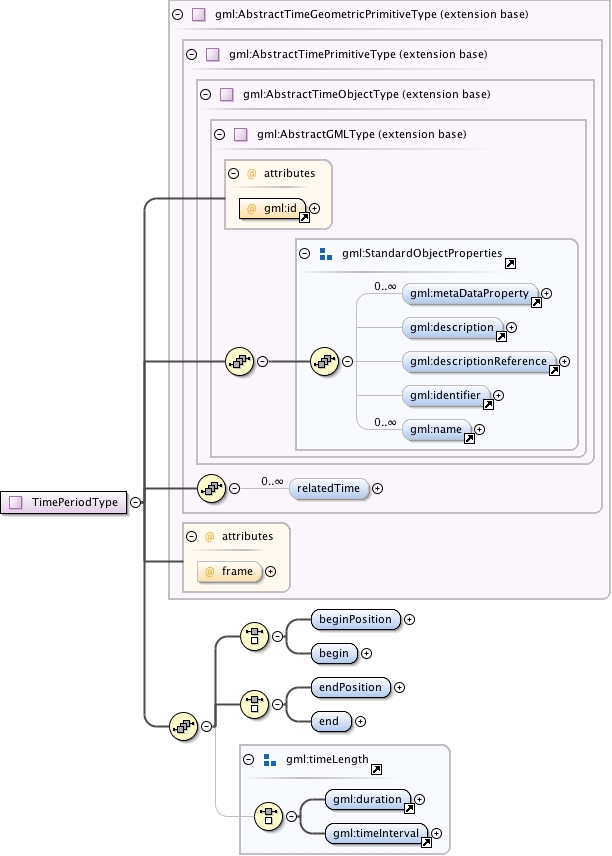| Namespace | http://www.opengis.net/gml/3.2 | ||||||||||||||||||||||||
|
Diagram
|
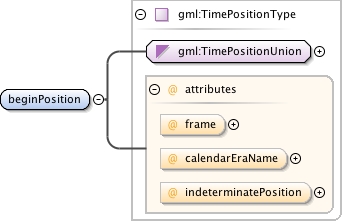 |
||||||||||||||||||||||||
| Type | gml:TimePositionType | ||||||||||||||||||||||||
| Type hierarchy |
|
||||||||||||||||||||||||
|
Properties
|
|
||||||||||||||||||||||||
|
Attributes
|
|
||||||||||||||||||||||||
|
Source
|
|
||||||||||||||||||||||||
| Schema location | http://schemas.opengis.net/gml/3.2.1/temporal.xsd |
